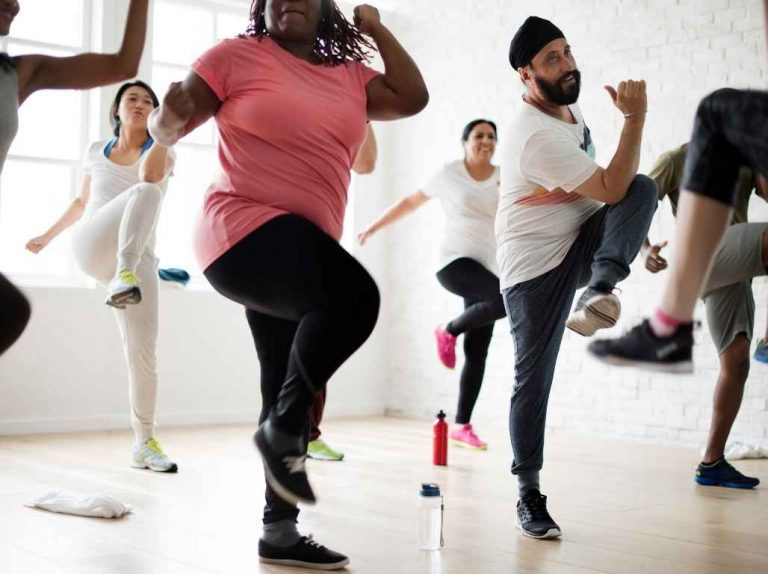Can Exercise Prevent Relapse: Yes, And Here’s How
How can exercise prevent relapse? It works by substituting unhealthy behaviors for healthy ones. And exercise can help bring back pleasure at the same time. Here’s how. Substance and behavior disorders alter brain function and prevent natural feelings of pleasure and happiness.
Addiction is a chronic and progressive illness that physically changes the mind and body. It alters a person’s body chemistry so that they are physically and psychologically craving more. These changes make relapse likely—between 40% and 60% of people with a drug addiction will relapse at some point during their recovery journey. But what if there were a way to help strengthen the defense against a relapse?
Can Exercise Prevent Relapse By Changing The Brain
Yes, brain damage can be mitigated Engaging in regular aerobic exercise causes several benefits in the human mind and body that both, directly and indirectly, can help a person who is in recovery stay in recovery for the long term. But how, exactly? That’s what we will explore in this article.
How Does Addiction Change the Brain
To understand how addiction affects the brain, we first have to describe how the limbic system works. The limbic system—also known as the rewards center—processes pleasure in the brain. It does this through the neurotransmitter dopamine, which floods an area of the brain called the nucleus accumbens. Not only does this system moderate feelings of pleasure and wellbeing, but it has a crucial role in social learning and memory development in many different animals—not just humans.
This system is indiscriminate—it doesn’t care what the source of the pleasure is. In other words, the process works the same whether you are hitting a home run, winning the lottery, going out on a date, or learning a new language. When a person becomes addicted to a substance, this reward system becomes overloaded. The most addictive drugs directly hijack the limbic system, altering a person’s brain and behavior.
Because the limbic system is an integral part of the learning process, a person’s ability to learn new things and form new memories becomes compromised. As a result, all their energy becomes focused on achieving the dopamine rush.
The Same is True of Addictive Behaviors
This hijacking can happen even with substances that aren’t physically addictive. Remember, the reward system is indiscriminate—it doesn’t care about the source of the dopamine rush. The feedback loop can become corrupted even through addictive behaviors like gambling or sex.
Behavioral Impacts of Addiction
Looking at addiction from the perspective of brain chemistry is a valuable tool, but it ignores the element of human suffering. Though we are talking about brains, we are really talking about people whose lives have been upended by this chronic illness.
However, by looking at the neuroscience behind addiction, we can put some of the behaviors of people with addictions into proper context. Understanding that addiction is a brain disease makes it easier to understand the how and the why behind an addict’s behaviors. Where addiction was seen as a moral failure and a sign of weakness in the past, our society now knows otherwise—addiction changes the brain. But so does exercise.
Can Exercise Prevent Relapse And Help The Brain Recover
Regular aerobic exercise encourages neuronal regeneration and synaptic regeneration. We can further demystify these fancy terms: regular aerobic exercise rebuilds or replaces old brain cells and restores lost or damaged connections (synapses). But how?
Specifically, exercise increases the amount of a chemical called brain-derived neurotrophic factor (BDNF). This is the essential compound responsible for increasing synaptogenesis. This type of exercise also increases blood flow to the brain, which is good for brain health in a number of ways—the most important being the benefits it has on the health of glial cells, which support the health and function of neurons.
These healing processes specifically occur in areas of the brain associated with learning, memory, and motivation. This means that regular aerobic exercise can help restore some of the damage done to the limbic system by addiction.
How Can Exercise Prevent Relapse By Reducing Stress
The following benefits are associated with exercise generally, but they also improve the quality of life people living in recovery and help prevent the issues that cause relapse.
- Reduced Stress
- Improved Sleep
- More Energy
- Improved Mood
- Boosted Immune System
How Can Exercise Prevent Relapse And Make Recovery Lasting
Exercise is one of several practical tools for helping people living in recovery avoid relapsing. Though relapse rates range between 40% and 60%, exercise, as part of a healthy, recovery-focused lifestyle, might just be the saving grace from relapse.
Exercise is also suggested as a supplemental therapy for those people first trying to kick an addiction. Due to the benefits listed above, exercise is part of most addiction treatment plans, along with medication-assisted treatment.

Jenn Walker is a freelance writer, blogger, dog-enthusiast, and avid beachgoer living unapologetically in recovery in Southern New Jersey.
More to read:
Recovery Is More Than Exercise





















